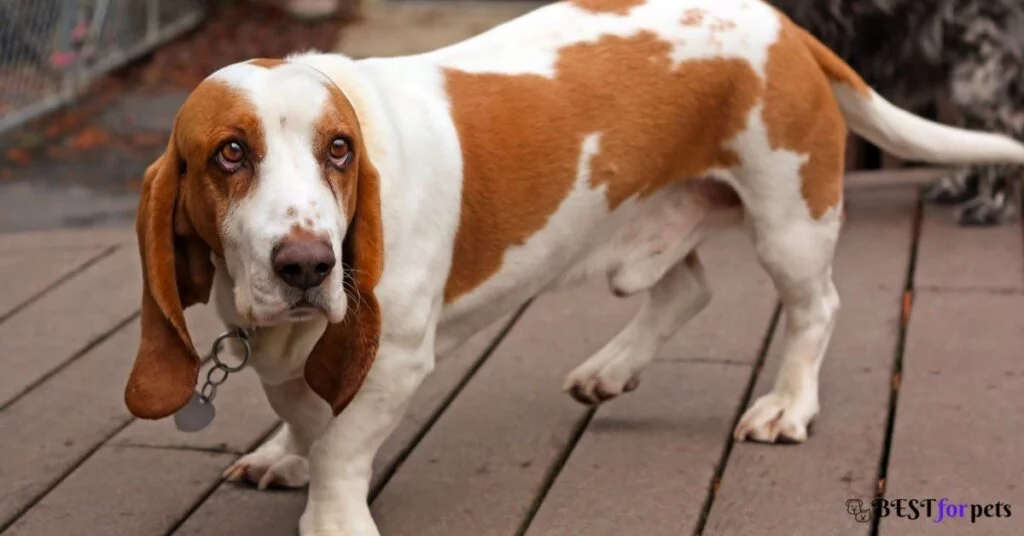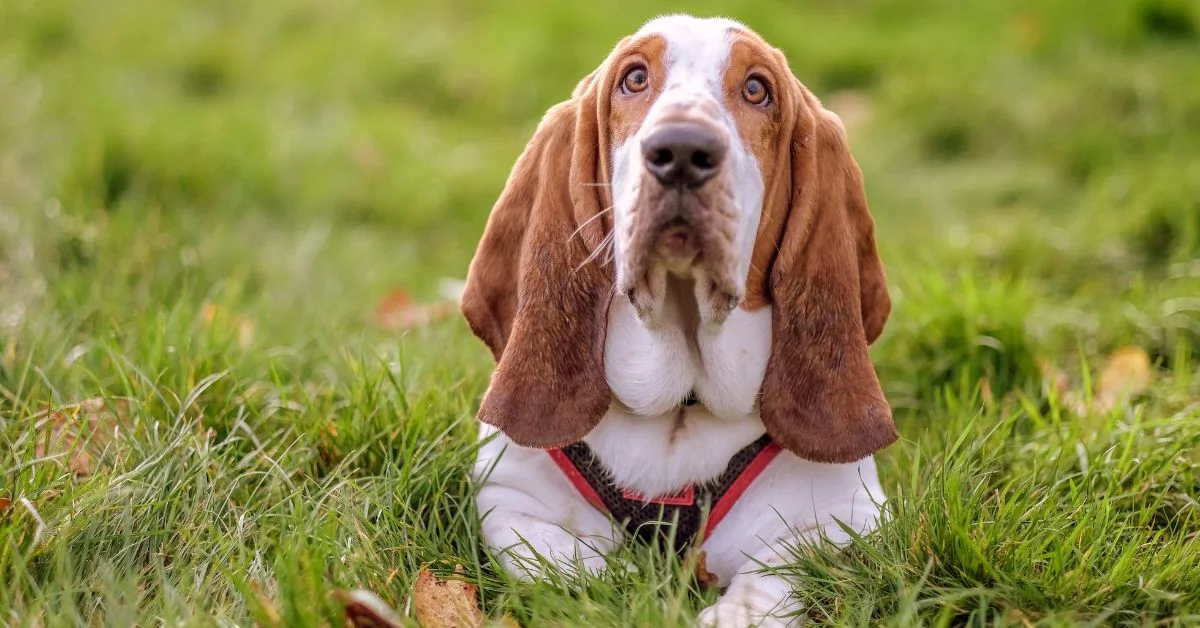//Prices//
Basset Hound Price In India
Indian Cities |
Prices |
| Basset Hound price in Mumbai | Rs 25,000 to Rs 60,000 |
| Basset Hound price in Delhi | Rs 25,000 to Rs 65,000 |
| Basset Hound price in Bangalore | Rs 25,000 to Rs 60,000 |
| Basset Hound price in Ahmedabad | Rs 25,000 to Rs 60,000 |
| Basset Hound price in Kolkata | Rs 25,000 to Rs 60,000 |

Basset Hound Price In India
The price of a Basset Hound in India can vary depending on a number of factors, such as the breeder, location, and lineage of the dog. On average, Basset Hound price in India cost anywhere from Rs 25,000 to Rs 60,000 or more.
Various Factors That Affect The Price Of Basset Hound
Breeder and reputation
The reputation of the breeder can play a big role in the price of a Basset Hound. Breeders with a long-standing reputation for producing high-quality, healthy puppies may charge more for their puppies than newer or less-established breeders.
Pedigree
Basset Hounds with a strong pedigree, meaning they come from a long line of champion show dogs or working hunting dogs, may command a higher price than dogs with unknown or unremarkable bloodlines.
Age
The age of the Basset Hound can also affect the price. Puppies are typically more expensive than adult dogs, and older dogs may be less expensive than puppies.
Health
Basset Hounds with health issues or genetic defects may be less expensive than dogs that are healthy and free of genetic issues.
Gender
Female Basset Hounds may be more expensive than males due to their ability to produce puppies.
Coat color
Basset Hounds with rare or unusual coat colors may be more expensive than dogs with more common colors.
About Basset Hound
In England, Basset Hounds were further developed for their hunting abilities and were often used in packs for hunting rabbits and hares. They were also bred to be larger and heavier than their French counterparts, which made them more suited for hunting in the English countryside.
Basset Hounds gained popularity as a pet in the 20th century, and their friendly and easygoing nature made them a beloved family companions. Today, Basset Hounds are recognized by the American Kennel Club and are a popular breed all around the world. Despite their hunting heritage, Basset Hounds are primarily kept as companion animals, although some still participate in hunting trials and other performance events.
Temperament of the Basset Hound
Basset Hounds are known for their friendly and laid-back temperament. They are affectionate dogs who love to be around people and other animals, making them great family pets. Basset Hounds are also patient and gentle with children, making them a popular choice for families with young kids.
Despite their friendly nature, Basset Hounds can be stubborn at times, which can make training a bit of a challenge. They may be slow to learn new commands and may require patience and persistence from their owner. Positive reinforcement training methods, such as praise and treats, can be effective in training a Basset Hound.
Appearance Of Basset Hound
Basset Hounds are a medium to large-sized breed, known for their long ears, wrinkled forehead, and droopy eyes. They have a distinct, low-to-the-ground build, with short, stout legs that are sturdy and powerful. Here are some key physical characteristics of the Basset Hound:
Height
Basset Hounds typically stand around 14 inches tall at the shoulder.
Coat
Basset Hounds have a short, dense coat that is typically tri-colored, with a combination of black, white, and tan markings. The coat is easy to maintain and requires minimal grooming.
Tail
Basset Hounds have a long, tapered tail that is carried low to the ground. The tail is typically tipped with white.
Weight
Adult Basset Hounds weigh between 40 to 65 pounds, with males typically being larger than females.

Ears
Basset Hounds have long, droopy ears that are soft and velvety to the touch. The ears are an important part of the breed’s hunting heritage, as they help to stir up and trap scents.
Eyes
Basset Hounds have large, droopy eyes that are often described as “sad-looking.” The eyes are typically brown or hazel in color.
Body
Basset Hounds have a long, muscular body with a deep chest and broad shoulders. They have short, powerful legs that are designed for stamina and endurance, making them well-suited for hunting.
Basset Hound Lifespan
The lifespan of a Basset Hound typically ranges from 10 to 12 years, although some may live longer with proper care and attention to their health needs. Genetics, lifestyle, and overall health play important roles in determining a Basset Hound’s lifespan.
Basset Hound Maintenance Cost
The cost of maintaining a Basset Hound can vary depending on several factors, including the dog’s age, health, and lifestyle. Here are some potential expenses to keep in mind:
Food
Basset Hounds have a healthy appetite and can eat a significant amount of food, so the cost of feeding them can add up. Expect to spend between Rs 1,000 to Rs 3,500 per month on high-quality dog food.
Veterinary care
Regular checkups, vaccinations, and preventive care can help keep your Basset Hound healthy and catch any potential health issues early. Plan to budget between Rs 5,000 to Rs 10,000 per year for veterinary care, which can vary depending on the specific services needed.
Grooming
Basset Hounds require regular grooming to keep their coat and ears clean and healthy. The cost of grooming services can vary, but expect to spend between Rs 1,000 to Rs 2,000 per month for grooming.
Toys and supplies
Basset Hounds love to play and may require toys, chews, and other supplies to keep them entertained. Plan to budget around Rs 1,000 to Rs 2,000 per month for these items.
Training and socialization
Basset Hounds may benefit from obedience training and socialization to help them be well-behaved and comfortable around new people and animals. The cost of training can vary but expect to budget around Rs 5,000 to Rs 10,000 for basic training classes.
Tips For Finding A Reputable Basset Hound Breeder In India
If you’re considering adding a Basset Hound to your family, it’s important to find a reputable breeder who prioritizes the health and well-being of their dogs. Here are some tips for finding a reputable Basset Hound breeder in India:
Online directories
Check online directories, such as the Kennel Club of India, to find registered breeders in your area.
Research
Start by doing some research on Basset Hounds and what to look for in a breeder. Familiarize yourself with the breed’s characteristics, health issues, and temperament, so you can ask informed questions when speaking with breeders.
Referrals
Ask other Basset Hound owners, breeders, or veterinarians for recommendations on reputable breeders in your area.
Visit breeders
Once you have a list of potential breeders, arrange to visit them in person. This will allow you to see the conditions in which the dogs are kept, meet the breeder, and interact with the puppies.
Health guarantees
Reputable breeders should provide health guarantees for their puppies and be willing to disclose any health issues in their breeding lines.
Follow-up support
A good breeder will provide support and advice even after you bring your puppy home. They should be willing to answer any questions you may have and provide guidance on care and training.
Frequently Asked Questions
Are Basset Hounds Good With Children?
Yes, Basset Hounds are generally good with children. They are gentle and patient dogs, and can make great companions for kids. However, as with any breed, it’s important to supervise interactions between children and dogs to ensure they are safe and appropriate.
Do Basset Hounds Shed A Lot?
Yes, Basset Hounds are moderate to heavy shedders. They have a short, dense coat that requires regular grooming to keep shedding under control.
Are Basset Hounds Easy To Train?
Basset Hounds can be stubborn and independent, which can make them a bit more challenging to train than some other breeds. However, they are also intelligent and eager to please, and with consistent and patient training, they can learn a variety of commands and behaviors.
Is A Basset Hound A Good Pet?
Yes, Basset Hounds can make great pets for the right family. They are friendly, gentle, and loyal dogs that enjoy spending time with their owners. They are also low-energy dogs that don’t require a lot of exercise, making them a good choice for people with less active lifestyles.
Do Basset Hounds Bark A Lot?
Basset Hounds can be vocal dogs and may bark or howl if they are bored, lonely, or seeking attention. However, with proper training and socialization, you can help to minimize excessive barking.
Are Basset Hounds Good Apartment Dogs?
Basset Hounds can adapt to apartment living as long as they receive enough exercise and mental stimulation. They are generally low-energy dogs but still require daily walks and playtime. It’s also important to consider their vocal tendencies and ensure that they are not disturbing neighbors with excessive barking or howling.
Do Basset Hounds Have A Strong Smell?
Basset Hounds have a distinct, musky odor that is characteristic of the breed. This is due to the natural oils in their skin and coat.

